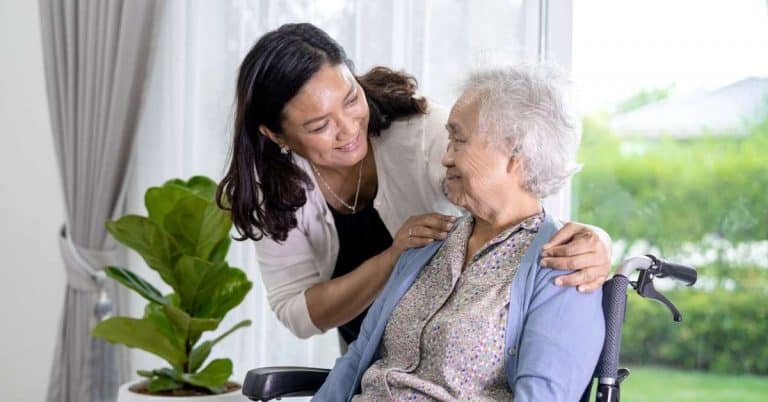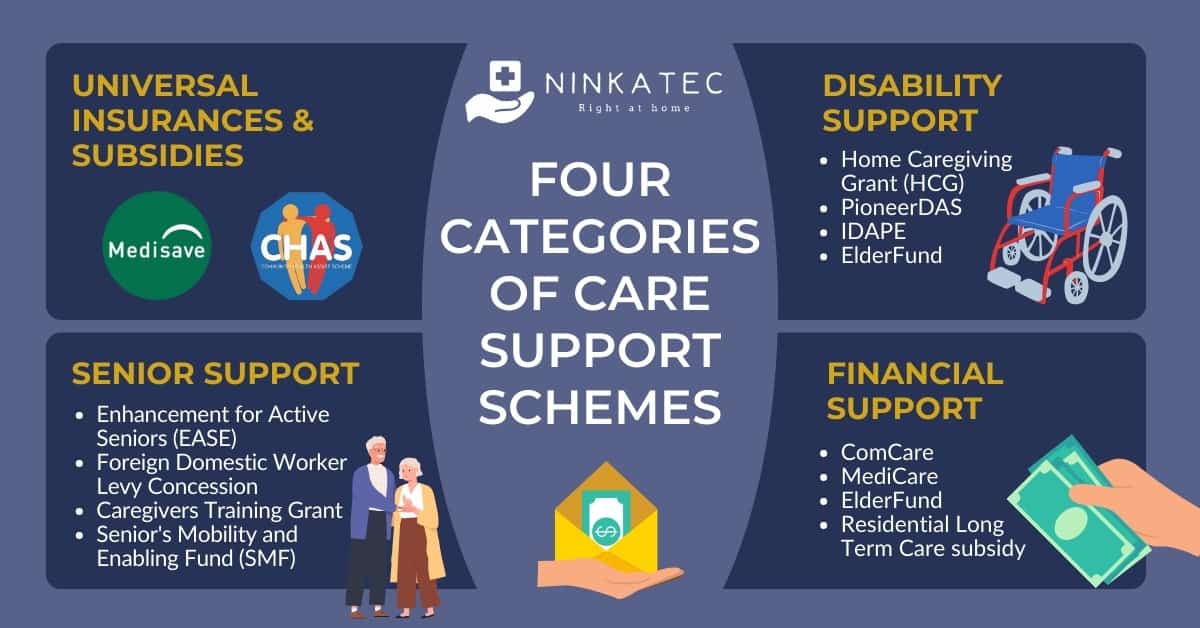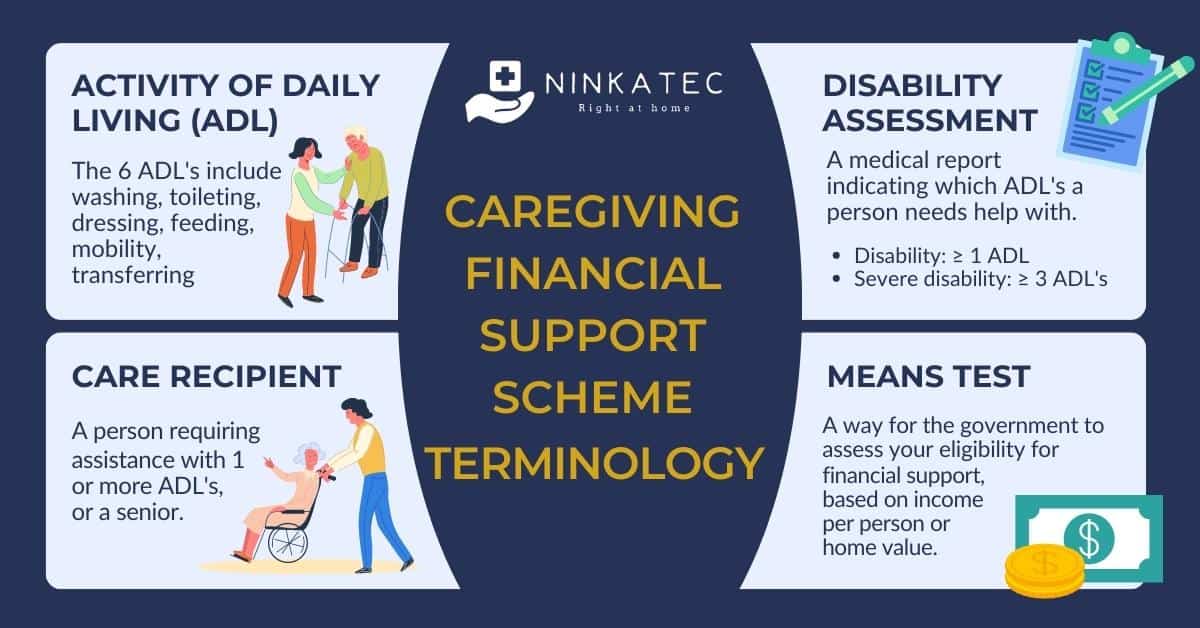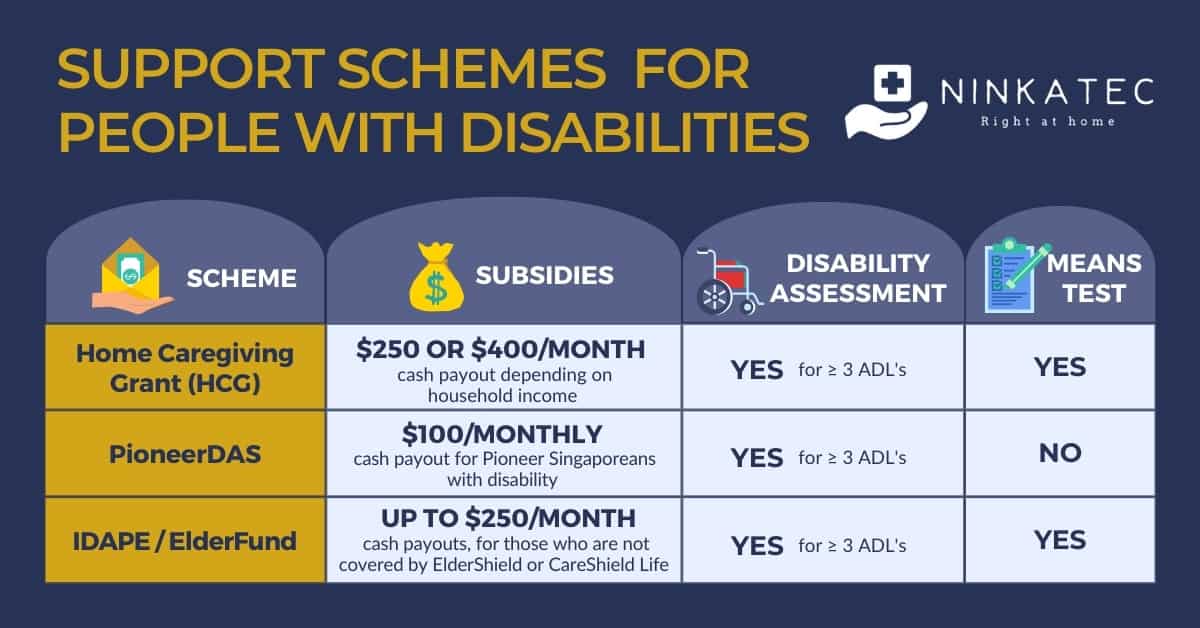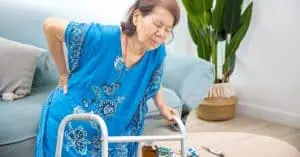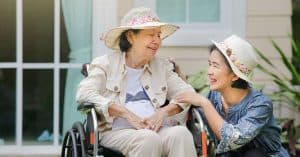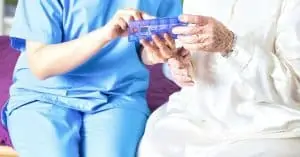According to a Lien Foundation-NUS study, home care could cost a staggering amount of S$3,100 per month for a severely disabled senior, and between S$900-$2,100 before subsidy per month in less severe cases. The good news is that there are multiple financial assistance schemes available for caregivers and care recipients in Singapore. These programs, however, can be complex to navigate, with eligibility criteria, application process, and support amount and method varying from one scheme to another.
In this article, we simplify and guide you through the existing and latest financial assistance schemes that are available in Singapore for care recipients and caregivers. We will also explain the terminology, eligible conditions and support amounts to help you conduct assessment for yourself and the loved ones you are caring for before submitting your application.
Table of Contents
Overview of Caregiving Financial Support Schemes in Singapore
There are 4 main groups of financial support plans related to healthcare needs in Singapore:
- Universal subsidies and health insurance plans by CPF Board: MediSave and the compulsory health insurance plans by CPF help you pay for large medical bills and provide protection in the event of disability, as long as you have a MediSave account. CHAS Green offers healthcare subsidies to all Singaporeans, provided you have applied for it. Additionally, there is support in the form of cash vouchers and CPF top-ups paid out from 2023 to 2025, targeting seniors, people with disabilities and low income individuals.
- Schemes to support Seniors: Qualification for this group of programs is by age. For instance, the Pioneer Generation Package (PGP) and Merdeka Generation Package (MGP) are for seniors born before or in 1959, regardless of health status and income. Other schemes are designed to assist seniors, as well as younger adults who need assistance in daily life activities, such as the Enhancement for Active Seniors (EASE) program by HDB and Foreign Domestic Worker Levy Concession by MOM.
- Schemes to support Persons with Disabilities (PWDs): Disabilities can affect a person's physical, sensory, intellectual or social functioning. In Singapore, support programs come in the form on cash payout, subsidies to healthcare cost, caregiving cost and other expenses. In the context of this article, we only address assistance programs in which disabilities interfere with one or more activities of daily living (ADL's - we explain this term in the next section on terminology), as certified by an accredited assessor. These schemes include Home Caregiving Grant (HCG), Pioneer Generation Disability Assistance Scheme (PioneerDAS), Caregivers Training Grant (CTG), Senior's Mobility and Enabling Fund, Interim Disability Assistance Programme for the Elderly (IDAPE), and Intermediate And Long-Term Care (ILTC) subsidies. Some of the schemes in this group are also targeted to support families with middle to lower income.
- Financial assistance for care recipients in Middle to Lower-Income households: Eligibility to this group of schemes depends on your household income, determined through a 'means-test' (we explain means testing in the next section on terminology). The amounts of subsidy or financial assistance may differ depending on the assessed income level. For instance, the Community Health Assist Scheme (CHAS) provides 3 different levels subsidies for 3 incomes tiers, two of which (CHAS Blue and CHAS Orange) require the recipient's monthly household income not to exceed $2,000 per person, or annual home value not to exceed $21,000. HomeCaregiving Grant (HCG), residential Long-Term Care (LTC) subsidies and financial assistance provided by ComCare also require means-testing.
Understanding the Terminology in Caregiving Financial Support and Subsidy
First, it is important to understand the definitions of a care recipient and caregiver in the context of government’s financial support and subsidy.
A care recipient can be a senior, understood as someone above the age of 65 or 67, depending on schemes. A care recipient can also be an individual who requires assistance with 1 or more of the 6 activities of daily living (ADL). The 6 ADL’s include:
- Washing or bathing
- Feeding
- Dressing
- Toileting
- Walking or moving around
- Transferring independently from bed to an upright chair, and vice versa.
A caregiver is someone who lives with the care recipient in the same household and provides such assistance. Although most financial support and subsidy programs revolve around supporting the needs and expenses incurred by the care recipients, caregivers are often the ones undertaking the application for, and probably managing the usage of, such support and subsidy. As such, you may hear us refer to the schemes discussed in this article as caregiver or caregiving support programs. But bear in mind they are always associated with the care recipients.
To quality for the support schemes catered to persons with disabilities, you will need to provide a disability assessment report together with your application. This refers to a doctor's memo or a Functional Assessment Report (FAR) issued by an MOH accredited assessor detailing the care recipient's condition and how it affects his or her activities of daily living. Some support programs are designed to assist people who need support with at least one ADL, while others cater to individuals requiring assistance with at least 3 ADL's - also known as people with 'severe disabilities'. A disability assessment can be done by visiting the assessor's clinic. If your loved one has mobility difficulty, you can request an assessor to conduct the assessment in your home. You can use the same report to apply for different support schemes. Disability assessment fee is $100 upwards for in-clinic assessment and $250 upwards for home-visit, which can be reimbursed if your financial support application is successful. Ninkatec provides home assessment service among other home care services for your convenience. You can request a home assessment with us here or look for the nearest in-clinic assessor from here.
A number of the grants aim to support middle to lower income individuals and families. To qualify for the grant, your household income needs to be ‘means-tested’. A means-test is a way for the Singapore government to determine how much subsidies a person or household is eligible for. Most financial assistance schemes requiring means-testing provide support to households with monthly income per person of $2,800 or less. If the household has no income, annual value of the residence is used. As of now, no-income households eligible for financial assistance must be living in a residence with an annual value of $21,000 or less. All you need to do for a means-test is to visit MOH household income check page to make sure your household income is assessed and updated.
Throughout this article, you will come across Agency for Integrated Care, or AIC for short. AIC is an independent corporate entity under MOH Holdings, overseeing the integration of care for the elderly, among other mandates. For the programs administered by AIC, you will need to submit application via their eServices for Financing Schemes (eFASS) application portal on their website, or at their offices located islandwide, known as the AICare Link network.
Now that we have covered the basics, let's go into details of each of the financial support schemes available for Singaporean care recipients and caregivers who live in Singapore. Singapore Permanent Residents who live in the same household with a Singaporean immediate family member are also eligible.
1. Insurance Schemes by CPF
It is estimated that 1 in 2 healthy Singaporeans aged 65 and above could have a disability or need long-term care. Statutory insurance schemes are a way to ensure individuals are protected against the burden of long-term care cost and loss of income in the event a disability happens. It also helps to provide a peace of mind from a young working age, without us having to figure out which insurance plans are necessary, when is best to start and so on. Participation to these schemes is automatic, provided you have a MediSave account.
Below are the mandatory insurance schemes administered by the CPF Board:
- ElderShield: This disability insurance program was first launched in 2002 and designed to protect against severe disabilities for all Singaporeans and Singapore Permanent Residents with MediSave accounts, starting from the age of 40. It provides monthly payouts of $300 (ElderShield 300) for a period of 5 years, and from 2007, monthly payout of $400 (ElderShield 400) for a period of 6 years starting from enrolment in the event a disability occurs. ElderShield is automatically enrolled and premium is paid from MediSave until the age of 65. Individuals with pre-existing disabilities are not eligible to join ElderShield.
- CareShield Life: Unofficially referred to as ElderShield 2.0, this disability insurance scheme is an enhanced version of ElderShield to better protect the ageing population. These changes include earlier starting age of 30 (instead of 40 as with ElderShield), no pre-existing condition exclusion, higher monthly payouts starting from $600 per month and increasing each year (instead of $300 or $400 for ElderShield), and a lifetime payout duration (instead of 5 or 6 years for ElderShield) in the event of a severe disability. However, it also comes with a higher premium compared to ElderShield, and premium is payable until the age of 67. For those born 1980 and after, ElderShield is not applicable and enrolment to CareShield Life is automatic and mandatory. Those who were born in 1979 or earlier and are currently covered under ElderShield are also auto-enrolled to CareShield Life but have the option to opt out latest by 31 December 2023. Joining incentives are available to bridge the premium gap for those not switching back to CareShield Life. Lower income individuals can apply for premium subsidies.
- MediShield Life: In addition to disability insurance programs, health insurance is essential in helping us to cover large hospital bills. Replacing MediShield in 2015, MediShield Life is an automatically enrolled health insurance plan for all Singaporeans and Permanent Residents, with the added benefit of covering those who are very old, or have pre-existing conditions. The protection is for life. Premium subsidies are available for Pioneers and lower-income individuals.
- MediSave Care: This is long-term care financing scheme, not an insurance plan, and as such does not require premium payment. It allows Singaporeans and SPRs above the age of 30 to tap into your own and your spouse's MediSave accounts to make cash withdrawals of up to $200 per month to pay for your long-term care cost, in the event of a severe disability (i.e., requiring assistance with at least 3 of the ADL's). You need a minimum MediSave balance of $5,000 and a disability assessment report to make the withdrawals. Application is required, via AIC's eServices for Financing Schemes (eFASS) portal.
- Other MediSave financing schemes: Your MediSave account can be used to finance a range of inpatient and outpatient medical costs that are not covered by your health insurance plans, up to defined limits. No application is required, because the filing is carried out by the hospital or clinics you visit. Highlighted below are some of the newly introduced schemes:
- Flexi-MediSave: This scheme is designed for Singaporeans and SPR aged 65 and above to tap into your MediSave more easily. It allows for usage of up to $300 from their MediSave accounts every year for outpatient medical services at participating public sector specialist outpatient clinics, polyclinics and CHAS clinics. You can refer to the list of eligible procedures here, under Outpatient Care section.
- MediSave500 and MediSave700 Scheme: All Singaporeans and SPR can tap into this scheme to finance necessary healthcare cost such as health screenings, vaccinations, and treatment of complex chronic conditions. The financing limit is $700 per year for those who have 1 or more of the 23 listed chronic conditions and $500 for others. Please refer to the full list here, under Outpatient Care section.
Although premiums to all the above insurance plans and withdrawals from MediSave are auto-deducted in most cases, everyone with a MediSave account is encouraged to stay updated with their account balance, usage and contribution. Since a person's MediSave can be used for immediate family members, this can help you plan for healthcare costs as a family. Your MediSave account can be accessed online easily via the CPF's eService using SingPass.
2. Community Health Assist Scheme (CHAS)
All Singapore citizens are eligible for subsidies for medical and/or dental treatment at participating General Practitioner (GP) and dental clinics under the Community Health Assist Scheme (CHAS). This tiered system provides higher subsidies and benefits for households with lower income, as well as Pioneer and Merdeka citizens who were born before 1959 in recognition of their contribution to the country.
Who are eligible to apply: All Singaporeans are eligible for CHAS benefits. Only one application is required for a household. The subsidy tiers are based on your household income per capita or Annual Value (AV) of your home. Pioneers and Merdeka Generation card holders receive the highest subsidy, regardless of their income of home value, and do not need to apply.
What financial assistance is available: Subsidies are available at all CHAS accredited General Practitioners and Dental clinics, covering services such as medical visits for chronic disease management, common illnesses, dental treatment, health screenings (under Screen for Life) and vaccinations (under National Adult Immunisation and National Childhood Immunisation Schedule). There are 5 tiers of subsidies:
- CHAS Green, for households with monthly income per person above $2,000 or annual home value above $21,000
- CHAS Orange, for households with monthly income per person from $1,201 to $2,000 or annual home value from $13,001 to $21,000
- CHAS Blue, for households with monthly income per person of $1,200 and below, or annual home value of $13,000 or below
- Merdeka Generation citizens, regardless of income
- Pioneer citizens, regardless of income
Details of subsidies for each service is available on CHAS website here.
How to apply: Application is accessible directly through CHAS website with your Singpass. Singaporeans aged 21 and above can apply on behalf of other household members.
3. Enhancement for Active Seniors (EASE)
EASE is a subsidy scheme by the Housing Development Board to help you make your HDB unit more elder-friendly, thereby reducing the risks of falls and injuries at home for the elderlies. The cost of eligible home improvement items are subsidised up to 95% and include:
- Slip-resistant treatment to floor tiles of up to 2 bathrooms
- Grab bars in up to 2 toilets (8-10 grab bars for first toilet, 6 grab bars for second toilet)
- Up to 5 ramps at the entrance or inside the unit
- Wheelchair lifter (newly included in EASE from April 2023)
Who are eligible to apply: Singaporeans who are
- aged 65 years old and above, or
- aged between 60 and 64 years and require assistance for one or more of the Activities of Daily Living (ADL's).
What financial assistance is available: Up to 95% of home modification cost, depending on approved items and the size of your HDB unit.
How to apply: You may apply online via EASE website using the Direct Application e-Service or Mobile@HDB app, or to the HDB’s Improvement Program (HIP) at your HDB. As part of the application, you would need to submit the following information:
- NRIC and the Date of Birth of the senior
- A medical report (doctor’s letter/memo, or Functional Assessment Report) indicating that the senior applying requires assistance for at least 1 ADL for applicants between 60-64 years old
- Senior’s assistive device and its dimensions (if applicable)
4. Foreign Domestic Worker (FDW) Levy Concession
The Foreign Domestic Worker Levy Concession allows Singaporean families to pay a concessionary FDW levy at $60 a month, instead of the usual rate of $300. Each household is eligible for up to two FDW levy concessions.
Who are eligible to apply: Households who employ foreign domestic workers to care for
- A senior aged 67 years or higher, or
- A person with disability who needs help with at least one of the ADL's (no age requirement)
What financial assistance is available: Concession of $240 a month on FDW levy or $480 a month if you employ more than 1 FDW.
How to apply: You do not need to apply if you or your spouse is 67 years old or above and employ the FDW yourself. However, if you apply on behalf of a senior loved one, an online form needs to be submitted to Ministry of Manpower (MOM). If you apply for levy concession as or on behalf of a person with disabilities, application needs to be submitted to AIC website together with disability assessment report, after you obtain approval to hire a domestic helper from MOM. Note that only FDW employers who live at the same address with the senior or the person with disability are eligible to apply for the FDW levy concession.
5. Caregivers Training Grant (CTG)
Caregivers Training Grant is a training fee subsidy program to support the caregiver’s need to attend training for the purpose of providing better care for a loved one.
Who are eligible to apply:
- Singaporeans or SPR caregivers who care for a Singaporean care recipient aged 65 years or above; OR
- Singaporeans or SPR caregivers who care a person who needs assistance with at least 1 activity of daily living (ADL's), as certified by an accredited assessor.
When there are more than 1 caregivers providing care for the care recipient, the caregiver applicant must be the one in charge. Other caregivers do not need to apply and can share the subsidy amount with the applicant. The training course must be completed, with a certificate of attendance if one is provided.
What financial assistance is available: Training fee subsidy when applying for one of the pre-approved courses, capped at $200 annually for all caregivers providing care to an eligible care recipient. Please note $10 registration fee needs to be co-funded by the caregiver for each training.
How to apply: Register for one of the pre-approved courses at least 2 weeks before training dates, complete the CTG application form and submit it to the trainer who will submit it on your behalf.
6. Home Caregiving Grant
Home Caregiving Grant (HCG) provides cash support for individuals with moderate and severe disability. Enhanced monthly cash payouts of $250 and $400 came into effect in March 2023, replacing previous payout of $200 per month.
Who are eligible to apply: Care recipients who
- Require assistance with at least 3 out of 6 activities of daily living (ADL's)
- Live in a household with monthly income per person of $2,800 or less, determined through means-testing, or living in a residence with annual value of $13,000 or less if the household does not have an income.
- Are not living in a residential long-term care institution such as a nursing home.
What financial support is available:
- Cash payout of $400/month for households with monthly income of $1,200 or less per person, or living in homes with annual value of residence of $13,000 or less (for households without income)
- Cash payout of $250/month for households with monthly income between $1,201 - $2,800 per person
How to apply: Fill in the application form and send together with the disability assessment report to AIC. You will also need to make sure your household income is assessed and updated by visiting MOH household income check page.
7. Pioneer Generation Disability Assistance Scheme (PioneerDAS)
PioneerDAS is part of the Pioneer Generation Package described above. It provides additional support in the form of $100 monthly cash payout to Pioneers who have a severe disability.
Who are eligible to apply:
- Pioneers, i.e., born before 1950 and became Singaporean before 1987, who are residing in Singapore; and
- Require assistance for at least 3 of the 6 Activities of Daily Living (ADL's), as certified by an assessor.
What financial assistance is available: Monthly cash payout of $100.
How to apply: Submit an application online via AIC eServices for Financing Schemes (eFASS) together with disability assessment form (Singpass is required for login). Alternatively, you can obtain a form in hard copy from one of the AIC offices to complete and submit.
8. Seniors’ Mobility and Enabling Fund (SMF)
SMF provides seniors who age in place with subsidies to pay for their assistive devices, home healthcare items, or transport needs. Ageing in place refers to choosing to stay put and grow old in an existing home rather than move to a nursing facility. Thus, people who age in place may need assistive equipment to go about their daily activities independently. As SMF target seniors staying in their own home, those who live in a nursing home or sheltered home are not eligible.
Who are eligible to apply: Singaporeans aged 60 years or above who
- Live in a household with monthly income per person of $2,000 or less, or living in a residence with annual value of $13,000 or less, determined through means-testing.
- Are assessed to need mobility aids or other assistive devices such as hearing aids, spectacles, geriatric chair, etc.
Motorised devices are eligible under SMF with additional criteria:
- Care recipient must not have a full time caregiver, or the caregiver is unable to support the care needs.
- Care recipient must not have the ability to use a manual wheelchair independently.
- Care recipient must be mentally and physically able to safely use the motorised device.
What financial assistance is available: 75% or 90% subsidy for the cost of the mobility aid or the maximum assistive device subsidy cap, whichever is lower. The subsidy tier is based on the assessed household income per person.
- 90% subsidy for household with monthly income per person below $1,200
- 75% subsidy for household with monthly income per person from $1,201 to $2,000
- Devices eligible for subsidy include walking stick, wheelchair, pressure relief mattress, protheses, orthoses, commode, hospital bed, spectacles, hearing aids, vision aids, as well as home care items such as ventilators, catheter, nasal tubing, adult diapers and milk supplements.
From February 2022, seniors whose subsidised device reaches the end of its lifespan can apply for replacement. You can refer to the list of assistive device categories and changes introduced to the program in 2022 here.
How to apply: Get assessed and applied for by the registered therapist, clinic or rehabilitation centre who are caring for you, or by downloading and submitting the application form together with necessary supporting documents (copies of NRIC, medical report, financial assistance reports if any) to AIC via email, post or at AIC offices (AI Care Links).
Note that a similar program called the Assistive Technology Fund (ATF) caters to people below 60 years old with permanent disabilities. If you have been receiving subsidies from ATF, you can continue with ATF and need not switch to SMF when you turn 60.
9. Interim Disability Assistance Programme for the Elderly (IDAPE)
IDAPE supports lower income seniors who are not covered under ElderShield insurance scheme due to age (60 years old in 2002 when ElderShield was first launched) or a pre-existing disability. They therefore do not receive the monthly cash payouts that individuals under ElderShield are eligible to when they suffer from a severe disability.
Who are eligible to apply: Singaporeans who
- Were born on or before 30 September 1932; OR
- Were born between 1 October 1932 and 30 September 1962 with pre-existing disabilities as of 30 September 2002.
- Live in a household with monthly income per person of $2,800 or less, or living in a residence with annual value of $13,000 or less, determined through means-testing.
- Are assessed to have a severe disability by a MOH accredited assessor (i.e., requiring assistance for at least 3 of the ADL's).
- Are not policy holders or claimants of ElderShield or CareShieldLife
Different from Home Caregiving Grant above, seniors living in nursing homes are eligible to apply.
What financial assistance is available: There are 2 tiers of monthly cash payouts:
- $250 for household with monthly income of $2,000 per person or less as determined by means testing, or living in a residence with annual value of $13,000 or less.
- $150 for household with monthly income from $2,001 to $2,800 per person as determined by means testing.
The payout duration is limited to 72 months (6 years), and can be used to defray medical bills, hiring domestic helpers, or other costs.
How to apply: Apply online via AIC's eFASS portal and submit your application together with the disability assessment report You will also need to make sure your household income is assessed and updated by visiting MOH household income check page. If you live in a nursing home, you can approach nursing home staff for help to apply.
10. ElderFund
The name ElderFund may suggest it is meant for the elderly, but it is not. In fact, ElderFund provides cash assistance for Singaporeans above the age of 30 who are severely disabled (i.e., need help with at least 3 of the ADL's), live in low income households, have low MediSave balances, and are not covered under ElderShield, CareShield Life and IDAPE.
Who are eligible to apply: Singaporeans aged 30 and above living in Singapore who:
- Assessed to be severely disabled by a MOH-accredited assessor, i.e., requiring assistance with 3 or more of the ADL's.
- Live in a household with monthly income per person of $1,200 or less.
- Have MediSave balance of less than $10,000
- Not covered or no longer covered under ElderShield, CareShield Life and IDAPE.
What financial assistance is available: Monthly cash payout of $250 for as long as you are eligible.
How to apply: Complete the application form online via AIC's eFASS portal and submit it together with the disability assessment report. Alternatively, visit the nearest AICare Link office and fill in a printed form. You will also need to make sure your household income is assessed and updated by visiting MOH household income check page.
11. Residential Long-Term Care (LTC) subsidies
Long-term care service bills can accumulate over time, making continuation of treatment a challenge, especially when there is affordability issue. The government offers residential LTC subsidies to patients who have monthly household income of $2,800 or below per person and require long term care and treatment from a government-funded LTC providers. Subsidised services include:
- Chronic Condition services
- Nursing Home services
- Inpatient Hospice Palliative Care Services
- Psychiatric Rehabilitation Homes
- Psychiatric Sheltered Homes
Who are eligible to apply: Singaporeans or Permanent Residents who
- Have household monthly income of $2,800 or below, or annual home value of $13,00 or below
- Are already receiving care from a LTC service providers funded by MOH.
What financial assistance is available: Patients can get subsidies of up to 75% for their care costs. Subsidy rate varies by your monthly income per capita, determined via means-testing. Detailed information on the subsidies are available on MOH website.
How to apply: Please approach the staff at the care centers you are receiving care from to enquire for subsidies. You will also need to complete the Means-test Declaration Form as part of your application.
12. Financial Assistance from ComCare (Community Care Endowment Fund)
ComCare is a government endowment fund providing social assistance to low-income Singaporean and SPR individuals and families. Support ComCare provides can be an immediate urgent assistance (ComCare interim), a short to medium term assistance (SMTA ComCare) to help recipients see through temporary challenges, or long term assistance (LTA ComCare) for those faced with long term difficulties due to old age or a disability.
Who are eligible to apply: Singaporeans or Singapore Permanent Residents living with a parent, child or spouse who is a Singaporean, who
- Have a monthly household income of $1,900 or less, or monthly individual income per person of $650 or less,
- Are currently looking for work or unable to work due to age, a disability, illness or caregiving responsibility provided to children, elderly or other dependants,
- Have little or no family support, savings or assets to rely on for your daily needs.
What financial assistance is available: A monthly cash payout depending on household size, as well as assistance to pay household bills, medical support, school fees for school-going children. Aside from financial assistance, the organisation also supports with job search and/or training to help you search for a job.
How to apply: Visit the nearest Social Service Office (SSO) to be assessed and guided through the application process. You can also visit ComCare website or call 1800-222-0000 to find out more.
13. Medifund (Medical Endowment Fund)
Medifund is a financial assistance program to support Singaporeans who have exhausted their financial resources to cover their medical bills, even after subsidies and other means of payment such as MediShield Life and MediSave. There are 2 funds within this fund - Medifund Silver for the elderly (aged 65 and above), and Medifund Junior for younger adults.
Who are eligible to apply: Singaporeans who
- Are subsidised patients (for example, was referred by a polyclinic, or by a hospital where you were subsidised patients)
- Have received treatment from a Medifund-approved institution
- Have difficulties affording the medical bill despite getting subsidies and being covered under MediShield Life and Medisave
- Applicants need to be 65 years old or above to apply for Medifund Silver
What financial assistance is available: The MediFund Committee shall determine the required level of assistance from your application. The amount of financial, health, and social support you receive is based on your and your family's financial, health, and social circumstances, as well as the size of the medical bill you have accrued.
How to apply: If you are being treated at a Medifund-approved organisations, medical social workers from there will help you apply for Medifund assistance.
14. Other Support Schemes for Caregivers
We hope the article provides a simple guide to finding out what care subsidy programs are for you and how you can tap into them. In addition to financial assistance in the form of subsidies and payouts, support can come in the form of services, such as provision of meals, medical escort, transport, etc for those in need. Be sure to check out the official Support Go Where website to be updated with all the subsidies and services you may benefit from, as a care recipient or caregiver. You can also find opportunities to volunteer or contribute - paying it forward is one of the best ways to give back to society and build a stronger community.
To enjoy CHAS subsidies for your GP visits, health screenings, or vaccinations, visit our CHAS Clinic - Charazoi Medical Clinic at 380 Jalan Besar, #05-01, ARC 380 Singapore 209000. Ninkatec also provides disability assessment at home. For additional support on medical matters in caring for elderlies, dementia care, cancer care, or post-stroke care, consult our team of doctors, nurses and caregivers via WhatsApp, phone, email or submit an enquiry form to us via our website.

